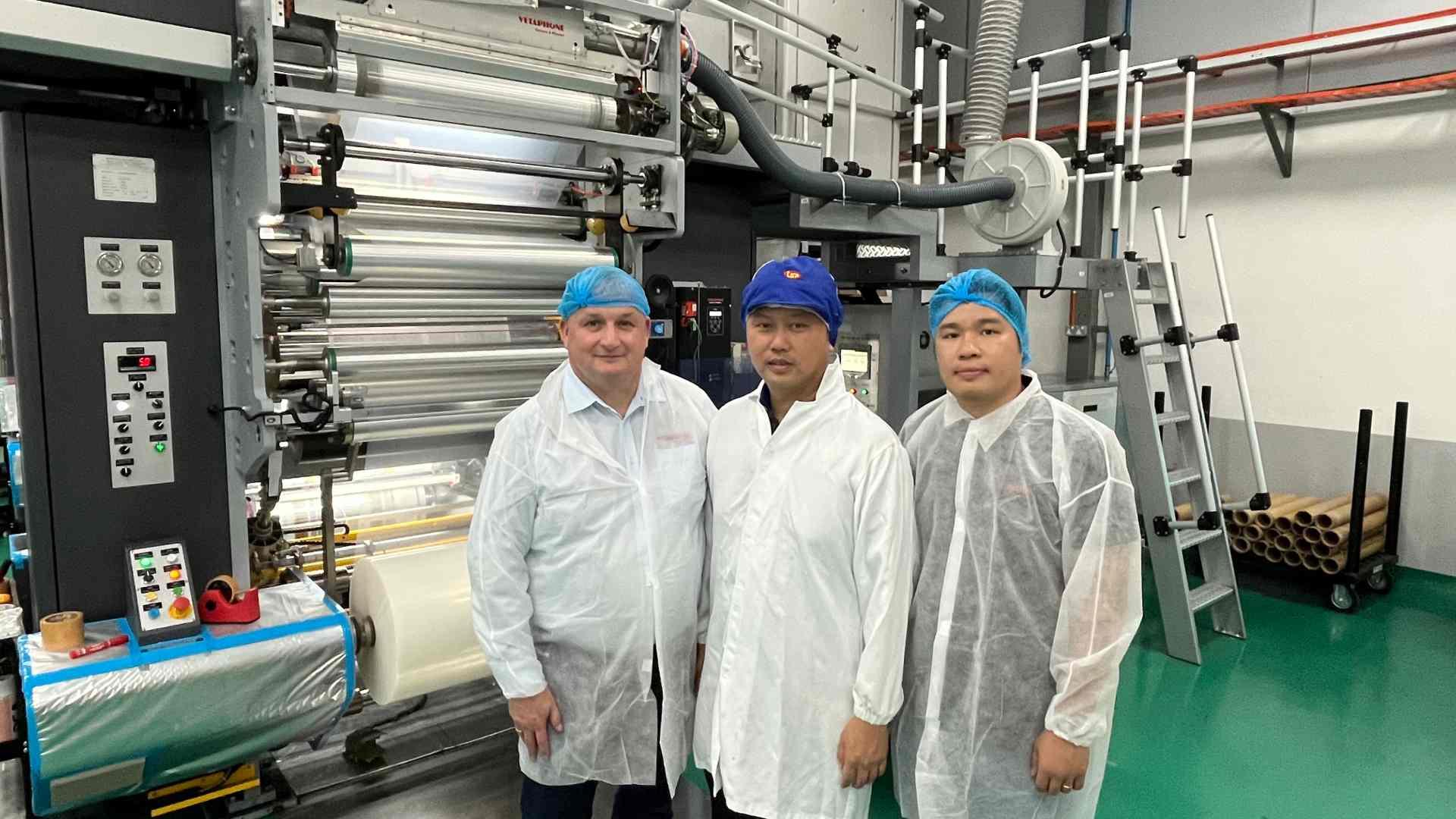Malaysia-based TS Plastics is a flexible packaging solutions leader committed to providing eco-friendly products. Most recently, the company has installed an 800mm wide Webcontrol laminating machine and chose to fit Vetaphone corona technology for the first time.
According to Executive Director, Vincent Oh Kai Hoo, the decision to switch to Vetaphone was on the recommendation of Webcontrol, which values the Danish manufacturer’s unrivalled knowledge and expertise in surface treatment – previously TS Plastics had used another corona brand, but notes that since installation, the Vetaphone has been more efficient and reliable under the same working conditions.
Multi-layer laminated products
As one of Malaysia’s leading printer/converters of flexible packaging, TS Plastics relies on its professional approach to quality control to secure new business and a raft of corporate management awards. Production largely focusses on multi-layer laminated products using OPP, PE, Nylon, Alu foil, metallized films, CPP and LLDPE substrates, on all of which the Company is accredited to GSFI, FSSC 22000 (5.1) and ISO 9001:2015 standards.
Established in 1978 to manufacture PP printed bags, TS Plastics grew over the next two decades to move into multi-layer laminated bags to meet the changing market demands. ISO accreditation came in 2004 and Malaysia’s ‘Golden Bull’ award in 2007. The factory expanded in 2008 and in 2014 moved into solventless production with an additional 30% capacity. Two further expansions have followed as well as the addition of wide web digital print capability to complement existing gravure capacity.
TS Plastics installed the digital press for shorter runs of up to 1000m. It runs at 20 – 30m/min compared with the gravure presses 250m/min but is ideal for the increasing number of SKUs the company handles. The laminators run at 200 – 250m/min using solvents and 400m/min on solventless work.
Mr Oh explained: “The latest Combi is far more efficient with its Vetaphone corona technology. It is easier to set, being interfaced with the Webcontrol, and is rated at 1kW compared with the 3.5kW that was previously needed for the same substrates – which shows the superior efficiency of Vetaphone’s iCorona generator – it is also operator-friendly in terms of cleaning and routine maintenance.”
Four brand names
The company products are sold under four distinct brand names: Dingwave, Kingozip, Digiflex, and Doospack. Dingwave is a pre-made film bag with a top seal for frozen food, or a microwavable self-venting bag that replaces the need for a one-way valve. This reduces cost and increases production efficiency, and it can be handled by automatic packaging machines. Kingozip is a single-sided structured zipper pouch that improves filling and reduces load on the zip. Doospack is a box pouch that can be easily re-closed and offers better stability and more promotional opportunities – it is ideal for packaging biscuits, nuts, petfood, rice, flour, and fertiliser, amongst other products. All three are indicative of TS Plastics’ innovative approach to flexible packaging.
Currently, around 200 people are employed on the six-acre site in Perak, which generates some RM100m business each year. Most is for local consumption with a typical turnaround of four weeks with slightly less on digital jobs. These account for 5% of business but the company foresees this figure doubling in 2024. Predictably, some 90% of output is with plastic substrates, but Mr Oh sees the paper side of the business growing in the years to come.
Concluding for Vetaphone, Sales Manager for Asia Pacific Holger Selenka added: “We are proud to be a partner of such an environmentally-friendly company as TS Plastics because it chimes well with Vetaphone’s ethos of production efficiency and intelligent technology. We look forward to developing our business with them.”
Caption: (left to right) Holger Selenka (Vetaphone) Vincent Oh Kai Hoo (TS Plastics) and Rayson Ng (Colorblend – Vetaphone’s local agent) at TS Plastics’ plant in Malaysia

